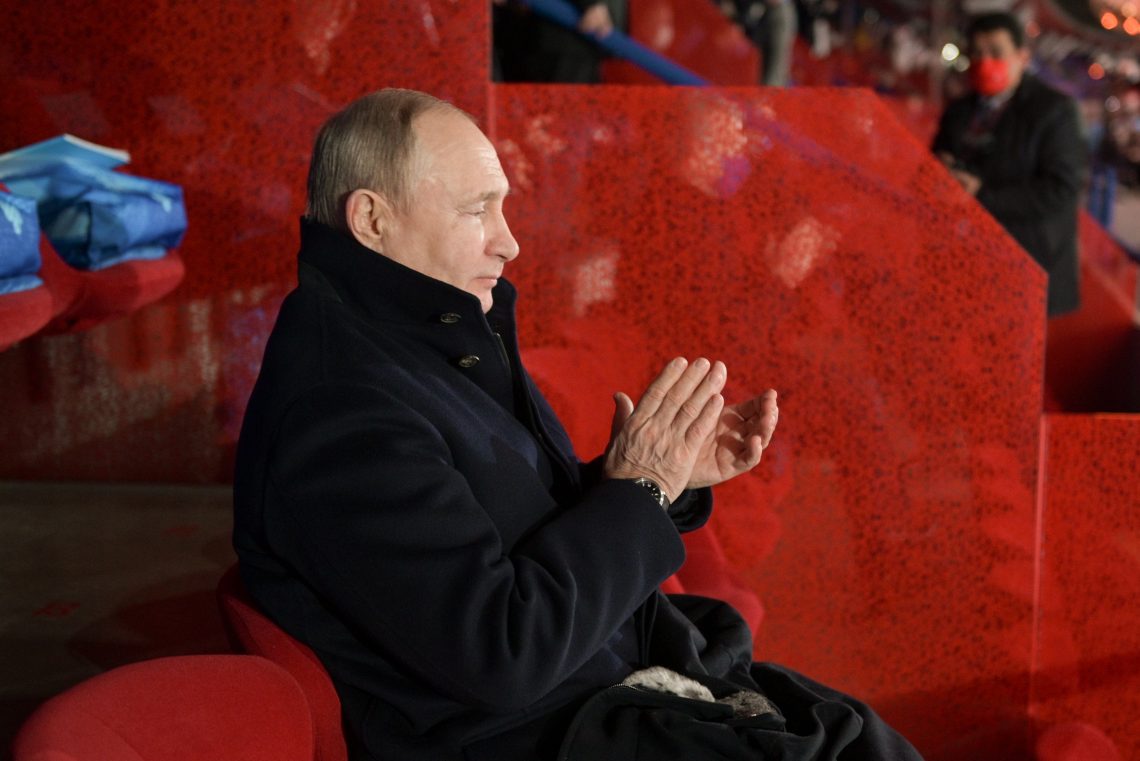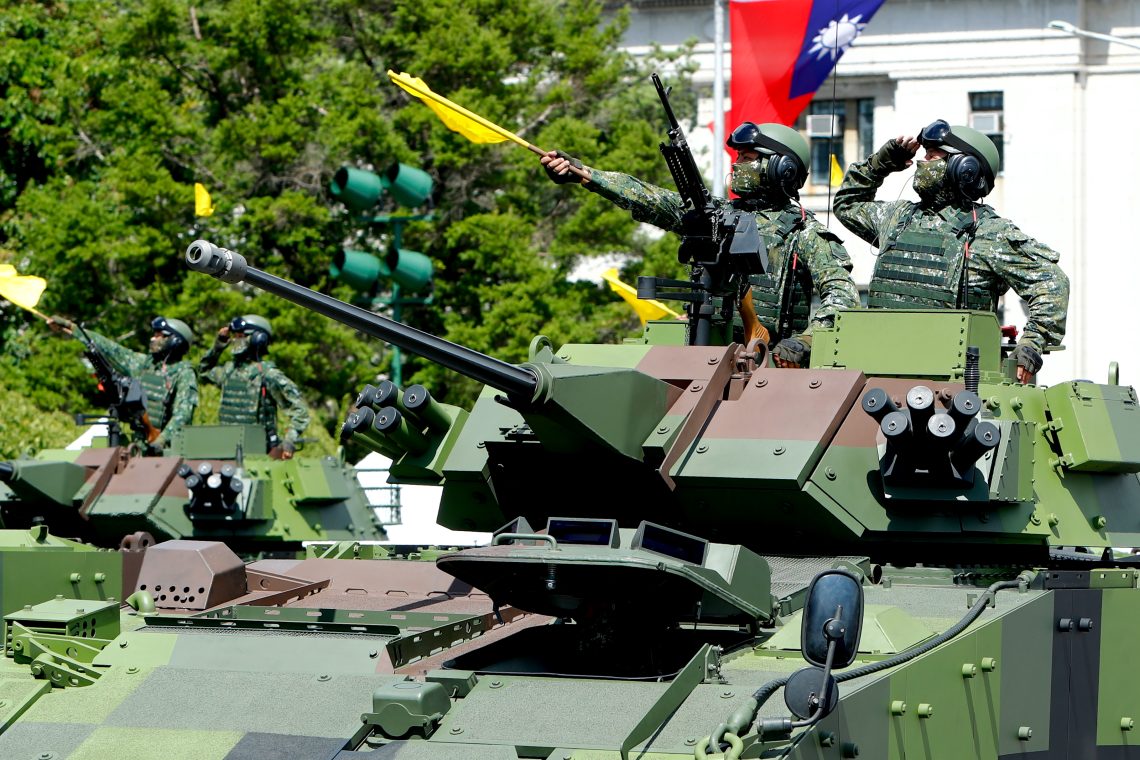Taiwan and the Ukraine-Russia crisis
How far the U.S. is prepared to go to uphold global norms in Ukraine will be telling for the Taiwan issue, especially with China playing a key role in the West’s standoff with Russia.

In a nutshell
- The crisis in Ukraine can inform the future of Taiwan
- Taiwan holds greater strategic interest for the U.S.
- Russia-China ties are deepening over the standoff
As the world is tensely maneuvering around the crisis in Ukraine, many observers cannot help but think of Taiwan. Both are seen as important test cases for the willingness of the United States to uphold global norms against the use of military force to seize territory.
But a direct comparison is inapt. It is necessary to look more closely at similarities and differences in the two cases to help identify solutions to the crisis.
Fundamental differences
The events in Ukraine and Taiwan span over different time periods. The crisis in Ukraine was sparked in 2014, and Russian President Vladimir Putin has increasingly prioritized the issue ahead of the 2024 election. Mr. Putin has sought accomplishments throughout the former Soviet Union, and his legacy in Ukraine is the annexation of the Crimean Peninsula and the fostering of a pro-Russia Donbas region.
Crimea is now firmly under Russian military control. However, as Ukraine’s military power grows, the Donbas region is increasingly likely to be retaken by force. Losing the region would be a huge blow to Mr. Putin’s reputation, and accordingly he began presenting ultimatums to the U.S. and NATO several weeks ago. Of course, the Russian leader is worried about NATO’s overall advance in Europe from a strategic point of view, but his real concern is the existing Donbas problem.
The Taiwan issue, on the other hand, stems from United Nations Resolution 2758 of 1971. This resolution transferred legal rights to the People’s Republic of China, and Chiang Kai-shek’s government was kicked out of the UN. However, the UN resolution failed to address many details of the “one China” issue. Taiwan as a polity has existed for some 50 years since then, and has been a democracy since the 1980s.
As Ukraine’s military power grows, the Donbas region is increasingly likely to be retaken by force.
In other words, Ukraine is a fully sovereign state, with Russia’s claim to Crimea and the Donbas region still unrecognized not only by the UN but by China as well. In China’s case, Mr. Putin has cast the annexation of the peninsula as the outcome of a referendum. To accept his claim would be to recognize the legitimacy of that referendum – something Beijing is not eager to do, lest it encourage a similar independence ballot for Taiwan.
Meanwhile, the island of Taiwan is a de facto quasi-country: i.e., it is objectively exercising its sovereignty like other sovereign states, although it does not have a seat in the UN. A fundamental difference between the two is that President Putin has already annexed Crimea and seized Donbas, and he faces the problem of consolidating his gains, while Xi Jinping has not managed to take Taiwan.
U.S. priorities in Asia-Pacific
Another important difference between the Ukraine and Taiwan issues lies in the vital geopolitical interests of the U.S. The U.S. recognizes Taiwan’s geographic location as critical to its regional security strategy and has passed both the Taiwan Relations Act in 1979 and the Taiwan Assurance Act of 2020. Although Washington has adopted a policy of ambiguity on whether it would intervene militarily in the event of an act of force against Taiwan by Beijing, the inclination toward forceful protection is clear.

The U.S., on the other hand, is far less concerned with Ukraine, and its interest in it has only begun in recent years. Certainly, President Joe Biden has learned from the withdrawal from Afghanistan and realizes he must appear brave enough to defend democratic allies – leading to the current swift and determined “hard and soft” strategy against Russia. Nevertheless, the U.S. has explicitly ruled out military intervention in the Ukraine crisis. Its focus on dealing with the Chinese challenge is coherent and solidified; this is reflected in the U.S. commitments to Taiwan, most recently emphasized by U.S. National Security Advisor Jake Sullivan.
In economic terms, Ukraine is currently an economic liability for the European Union, while Taiwan plays a decisive role in the global supply chain because of its semiconductor industry. This will also determine its continued attractive position in the years to come.
Beijing as a winner in Ukraine
From Vladimir Putin’s actions against Ukraine in 2014 to today’s military threats along the border, China has been watching carefully, keen to learn from Russia about strategy and tactics. Mr. Putin’s seizure of the Crimean Peninsula and the fostering of pro-Russian forces in Donbas were both valuable lessons for Xi Jinping, and Beijing has understood from the Russians how to exploit the internal contradictions of the enemy and to use the media to its advantage.
But in the case of today’s Ukraine crisis, real military action is unlikely, even if Mr. Putin’s words of intimidation have made the West and Ukraine particularly uneasy. Accordingly, Beijing is most concerned with using the standoff to bring Russia closer to China. Indeed, this is happening: President Putin attended the opening ceremony of the Olympics, and has struck several trade agreements with Mr. Xi, most importantly the Power of Siberia 2 pipeline, with a capacity of 55 billion cubic meters.
The deal is critical for Russia to reduce its dependence on European demand for its gas, and will also lessen China’s dependence on coal power. To get China’s support, President Putin made considerable concessions to Xi Jinping: as of now, Beijing will get more access to markets not only in Russia, but also in Central Asia.
Ideological opposition
Both the conflict between the West and Russia over Ukraine and the dispute over Taiwan reflect the rivalry between authoritarian and democratic regimes. Although Western governments have different approaches to defending other democracies, President Joe Biden’s efforts give the impression that they can act in unison. If one day Taiwan faces a “reunification by force,” the U.S. is expected to form an alliance with Japan and Australia to deter Beijing from military action.
Another similarity between Ukraine and Taiwan is that, as things stand now, the possibility of armed conflict in each case rests in the hands of one person – namely Mr. Putin in Russia and Xi Jinping in China. Of course, Beijing is currently busy with the Winter Olympics and the 20th Congress in October, so the possibility of armed conflict or even war is not as great as it is in Europe at the moment. But a deadline has reportedly been set for China to retake Taiwan in the next few years, allegedly before 2027. At that point Mr. Xi will already be 15 years into his tenure, longer than Mr. Putin’s current stretch as Russia’s president.
In both cases Western countries feel they must buy time and do everything possible to avoid war. On Ukraine, time would help facilitate an off-ramp for Mr. Putin, however uncomfortably, while allowing the West to readjust its own strategy.
As for Taiwan, the West (particularly the U.S.) is also buying time and hoping that in the future, the environment in mainland China will become democratic and thus friendlier, making coexistence with Taiwan possible. While this is an unlikely outcome, it is still a possibility.
Scenarios
In the first scenario, Mr. Putin will very likely enhance its integration of Donbas into Russia as well as increase its military aid to the region. Yet he will not launch a comprehensive war against Ukraine. And he will not blush at the fact that his own intimidation of the West is not working. Yet through this theater, he can at least show his own people at home that Russia is a victim of NATO expansion.
During the crisis, Russia seriously considered how to deal with various subsequent sanctions from Western countries. As a result, the Kremlin had to strengthen its relations with China even further in terms of energy, technology, finance and military. In return for China’s generosity, when the time is ripe Russia will send its own navy in the Sea of Japan and the Taiwan Strait to assist China in retaking Taiwan by force.
In other words, immediate coordination between Moscow and Beijing over military action is still unlikely, but it will become a reality with time. Today’s crisis in Ukraine has brought Russia-China relations to a new stage of strategic partnership. At the same time, the window for dialogue and communication between authoritarian and democratic camps is getting smaller and smaller. EU countries that are dependent on Russian gas and oil will become more vulnerable.
In a second scenario, Western countries, especially the EU, realize that failing to foster the Ukrainian economy after 2014 was a major mistake. As a result, since the current crisis in Ukraine began, Kyiv has received and will receive a considerable amount of military assistance from Western countries, and will increase the number of Ukrainian armed forces by 100,000 members in the next three years.
At the same time, there will also be an economic revival with the help of the West. More and more Western governments have finally realized that the only way to solve the Donbas problem and take back Crimea is to offer a more successful economy, coupled with the idea of democracy and freedom. At the same time, the European countries, mainly Germany, would know that they cannot get rid of their dependence on Russia on energy issues in the near future; while Russia will be forced to soften its foreign policy after an economic revival of Ukraine. As a result, there will be a kind of win-win, a certain degree of convergence between Europe and Russia, accompanied by an easing of relations with Ukraine as well.
Meanwhile, Taiwan’s de facto status will solidify, as European countries increase trade and investment and U.S. military assistance to Taiwan intensifies. The island’s military power will have strengthened to the point that Xi Jinping must realize that the cost of retaking Taiwan by force would be too great for his position to be secure. As a result, the plan to retake Taiwan by 2027 will be again postponed.
Judging by the lack of long-term thinking and domestic problems on the part of Western countries, and swift adjustments in the strategies of Russia and China, the first scenario seems more likely.







